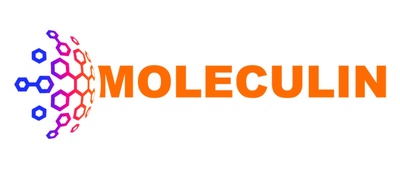Moleculin Biotech, Inc. announced its WP1096 molecule will be evaluated in animal studies through the preclinical services offered by the National Institute of Allergy and Infectious Diseases, part of the National Institutes of Health.
- Preclinical work being conducted is intended to validate in vitro findings in established animal models to determine if further preclinical development and human clinical trials are warranted
- Hemorrhagic fever arenaviruses (HFA) represent area of significant unmet need with no FDA-approved arenavirus vaccines or therapies
HOUSTON, Sept. 27, 2022 /PRNewswire/ -- Moleculin Biotech, Inc., (Nasdaq: MBRX) (Moleculin or the Company), a clinical stage pharmaceutical company with a broad portfolio of drug candidates targeting highly resistant tumors and viruses, today announced its WP1096 molecule (a part of its WP1122 portfolio of D-glucose and D-mannose antimetabolites) will be evaluated in animal studies through the preclinical services offered by the National Institute of Allergy and Infectious Diseases (NIAID), part of the National Institutes of Health. WP1096 is being studied by Moleculin as a novel potential therapy for a broad spectrum of viruses, including arenaviruses.
WP1096 is a compound within the WP1122 portfolio, which is designed to exploit, amongst other uses, the potential uses of monosaccharide (such as glucose or mannose) decoys as a means to inhibit glycolysis and alter glycosylation. As an example, the Company's WP1122 molecule is a prodrug of 2-deoxy-D-glucose (2-DG), and 2-DG has been approved outside the US for use as a treatment for COVID-19. The Company believes WP1096 may target and therapeutically impact glycolysis and glycosylation processes in host cells and viruses.
"We are encouraged by the data WP1096 has demonstrated in preliminary studies and look forward to further evaluating its potential as a much-needed anti-arenaviral therapy. The results of WP1096 preliminary studies show a broader spectrum of antiviral activity than 2-DG against hemorrhagic fever viruses (i.e., Argentine hemorrhagic fever, Marburg, Ebola and others), an area of significant unmet need, thus encouraging us to pursue advancing its development. We are grateful for this opportunity to take a step forward in unlocking further potential of the compounds within our WP1122 portfolio," commented Walter Klemp, Chairman and Chief Executive Officer of Moleculin.
Moleculin is currently conducting a Phase 1 trial of analog WP1122 (a prodrug of 2-DG) in healthy volunteers in preparation for a Phase 2 trial in COVID-19 patients. Between its antiviral effort with WP1122 and a range of oncology focused initiatives, Moleculin is not currently able to allocate significant resources to the development of WP1096. However, considering the promising WP1096 in vitro activity in a range of potentially deadly viruses previously demonstrated, Moleculin believes that WP1096 would be a good candidate for animal testing in arenavirus models where there is a significant unmet need.
The NIAID-funded animal studies will be with the Tacaribe arenavirus, a BSL-2 (bio safety level 2) virus and will be used as an indication of activity and as a means to optimize the animal testing protocol. Given the significant need for treatment alternatives in arenaviruses (and other hemorrhagic fever viruses), if WP1096 demonstrates significant efficacy in the requested animal studies, Moleculin intends to revise its current development strategy to accelerate development work on WP1096.
Moleculin Biotech, Inc. is a clinical stage pharmaceutical company focused on the development of a broad portfolio of drug candidates for the treatment of highly resistant tumors and viruses. The Company's lead program, Annamycin, is a next-generation anthracycline designed to avoid multidrug resistance mechanisms with little to no cardiotoxicity. Annamycin is currently in development for the treatment of relapsed or refractory acute myeloid leukemia (AML) and soft tissue sarcoma (STS) lung metastases.
Additionally, the Company is developing WP1066, an Immune/Transcription Modulator designed to be capable of inhibiting p-STAT3 and other oncogenic transcription factors while also stimulating a natural immune response, targeting brain tumors, pancreatic and other cancers; and WP1220, an analog to WP1066, for the topical treatment of cutaneous T-cell lymphoma. Moleculin is also engaged in the development of a portfolio of antimetabolites, including WP1122, for the potential treatment of COVID-19 and other viruses, as well as cancer indications including brain tumors, pancreatic and other cancers.
For more information about the Company, please visit www.moleculin.com and connect on Twitter, LinkedIn and Facebook.
Some of the statements in this release are forward-looking statements within the meaning of Section 27A of the Securities Act of 1933, Section 21E of the Securities Exchange Act of 1934 and the Private Securities Litigation Reform Act of 1995, which involve risks and uncertainties. Forward-looking statements in this press release include, without limitation, whether the results of in vitro testing of WP1096 can be replicated in animal models and, eventually, in human trials, the ability of WP1096 to be successfully tested in animals and Moleculin's ability to secure additional support for development of WP1096. Although Moleculin believes that the expectations reflected in such forward-looking statements are reasonable as of the date made, expectations may prove to have been materially different from the results expressed or implied by such forward-looking statements. Moleculin has attempted to identify forward-looking statements by terminology including 'believes,' 'estimates,' 'anticipates,' 'expects,' 'plans,' 'projects,' 'intends,' 'potential,' 'may,' 'could,' 'might,' 'will,' 'should,' 'approximately' or other words that convey uncertainty of future events or outcomes to identify these forward-looking statements. These statements are only predictions and involve known and unknown risks, uncertainties, and other factors, including those discussed under Item 1A. "Risk Factors" in our most recently filed Form 10-K filed with the Securities and Exchange Commission ("SEC") and updated from time to time in our Form 10-Q filings and in our other public filings with the SEC. Any forward-looking statements contained in this release speak only as of its date. We undertake no obligation to update any forward-looking statements contained in this release to reflect events or circumstances occurring after its date or to reflect the occurrence of unanticipated events.
JTC Team, LLC
Jenene Thomas
(833) 475-8247
MBRX@jtcir.com
![]() View original content to download multimedia:https://www.prnewswire.com/news-releases/moleculin-biotech-wp1122-portfolio-compound-wp1096-selected-for-niaid-funded-animal-studies-as-novel-potential-antiviral-301634046.html
View original content to download multimedia:https://www.prnewswire.com/news-releases/moleculin-biotech-wp1122-portfolio-compound-wp1096-selected-for-niaid-funded-animal-studies-as-novel-potential-antiviral-301634046.html
SOURCE Moleculin Biotech, Inc.
Company Codes: NASDAQ-SMALL:MBRX





